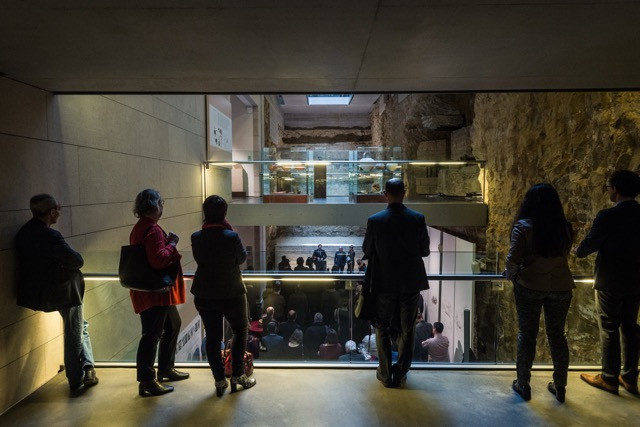Around 200 of the 556 registered journalists in Luxembourg attended the talk at the national history and art museum by Luxembourg press council president Ines Kurschat and media minister Xavier Bettel.
Kurschat welcomed the openness of the new government coalition. She said: “We hope we can work with them together for example on freedom of information, that’s a big point we’ve been following. For 13 years there’s not been much progress in that topic. In the coalition agreement they said they would discuss it with us and we’re happy to join this discussion.”
Luxembourg does not currently have a freedom of information act, legislation which would grant public access to documents or data held by the government. However, on 1 January 2019 a new law came into effect obliging public bodies to automatically publish online public documents or provide it within a month of it being requested.
The second priority of the press council is to reform the way public money is distributed among Luxembourg media. Kurschat applauded the fact that online media had now been included in the list of eligible channels. However, she raised concerns that the budgets being proposed were not sufficient and that decisions over its distribution were not clear and risked government influence.
“The definition is too vague to follow easily. And, the other thing is the commission, in its representation, has one third people from the media and two thirds people from the government,” Kurschat told Delano. “In the context of press freedom and the aim of the prime minister to support media pluralism and enhance the quality of journalism, we consider that’s a critical point because then it will be government representatives who decide and judge the quality of journalism. That cannot be.”
Kurschat's concerns echo those of the findings of a media plurality monitor published in November 2018 which found, among other things, that the level of political control over media had worsened in the preceding 12 months.
Financing the media
Public finance for private media firms is considered essential for a diverse media landscape in Luxembourg because the size of the population is too small for media companies to survive on the profits of classical revenue generating streams alone.
In recent years, a small number of Luxembourg media have introduced paywalls. Among them are traditional media like the Luxemburger Wort, and the recently founded Reporter.lu, an investigative news source established by a team of young Luxembourg journalists.
Speaking for herself, Kurschat said she was not convinced on the sustainability of such business models. “If it doesn’t pay off we will have to discuss and rediscuss the question of public funding of journalism. It’s something that’s traditionally established in Luxembourg. Maybe we have to discuss the trends and see if there are new ways of financing we can do.”
On the consumer side of media, the press council has worked closely with the education ministry to improve education of young people in relation to fake news. Kurschat urged the public to “buy media, inform themselves”, question the quality of the information they are receiving and consider what a difference paying for media would have on that quality.
